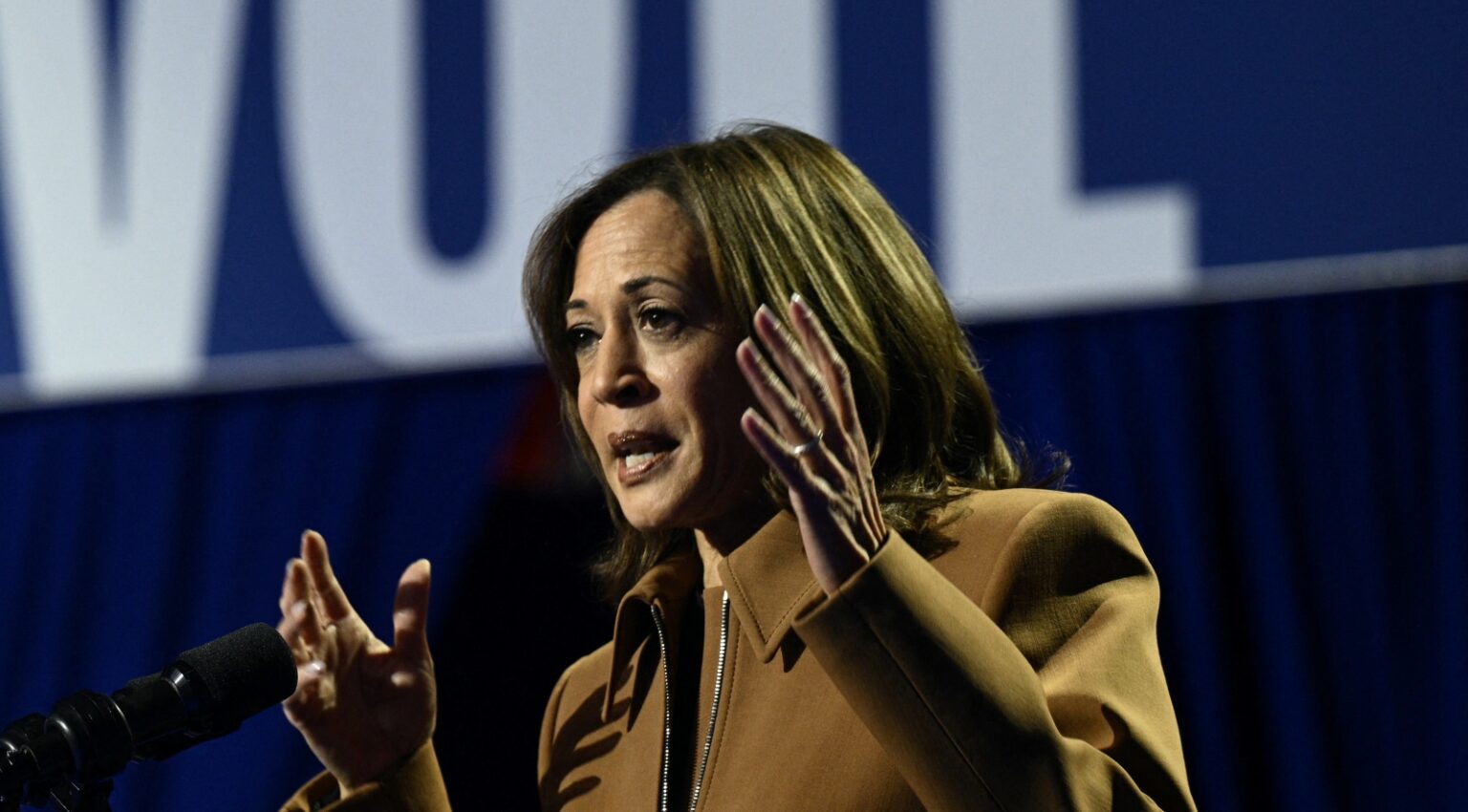Vice President Kamala Harris’ recent campaign event with Michelle Obama in Kalamazoo, Michigan, was marked by disruption and controversy, underscoring the increasingly challenging dynamics of the 2024 presidential race. The rally was intended to showcase unity, with former First Lady Obama making a pointed appeal to undecided voters. However, the event took an unexpected turn when Harris was met with a protester demanding an end to the Gaza war.
As Harris began her speech, chants of “No more Gaza war” filled the venue, forcing her to pause while the crowd responded with boos. She addressed the interruption briefly, saying, “On the topic of Gaza, we must end that war,” attempting to calm tensions. This incident comes at a sensitive time, particularly in Michigan, where the state’s significant Arab-American population is deeply concerned about U.S. policy on the Israel-Gaza conflict.
Outside the rally, a small but vocal group of pro-Palestinian demonstrators marched and chanted, criticizing Harris and the Biden administration’s stance on the conflict. This tension reflects a broader national sentiment, especially as recent polling shows former President Donald Trump gaining traction among Arab-American voters in key battleground states like Michigan.
Abdullah Hammoud, the Mayor of Dearborn—the nation’s only majority-Arab city—has notably withheld his endorsement, reflecting the deep divisions within the community over U.S. foreign policy and its impact on Gaza. This hesitancy has underscored the complexities Harris faces in securing votes among Michigan’s diverse electorate. Harris’ appearance in Michigan coincided with Trump’s own campaign stops, where he received endorsements from Muslim community leaders and engaged directly with local residents.
In her final campaign push, Harris has leveraged high-profile appearances from Beyoncé, Bruce Springsteen, and Barack Obama to energize voters. Critics argue, however, that the glitzy events stand in stark contrast to Trump’s down-to-earth appearances at UFC matches, construction sites, and even a McDonald’s in Pennsylvania. These contrasting approaches are underscoring a divide in campaign strategy: Harris’ Hollywood-backed rallies versus Trump’s grassroots-style events.
Adding to Harris’ challenges, her campaign’s decision not to accept an invitation to appear on the Joe Rogan Experience has sparked criticism. Rogan, whose podcast boasts millions of viewers, recently hosted Trump in a nearly three-hour interview that has since racked up over 26 million views. Despite Harris’ recent campaign stops in Texas, her team cited a “scheduling” conflict as the reason for declining the invite—a decision that was met with backlash from political commentators and Rogan fans alike.
Bill Maher, the HBO “Real Time” host, criticized Harris’ choice to skip both his show and Rogan’s, calling it a “mistake” during a CNN segment. Maher underscored the importance of reaching voters on influential platforms like Rogan’s, a sentiment echoed by Democratic Colorado Governor Jared Polis, who hinted that he’d rebook a spot if Harris were willing to engage with such a large audience.
As the campaign inches toward election day, the Harris team’s strategic choices, particularly on engaging with high-profile media platforms and responding to escalating concerns on foreign policy, will likely play a critical role in defining the final stretch of the race. For more details visit https://newsnotify.pk
